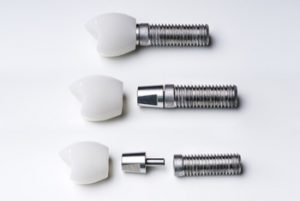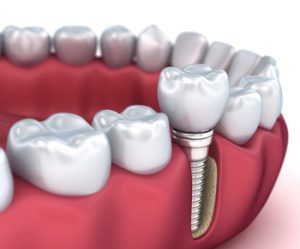When considering dental implants, Turkey often emerges as an enticing option, particularly for Australians seeking affordable treatment for their smile makeover. However, beneath the allure of low prices lie significant risks and drawbacks. This article aims to delve into the perilous landscape of dental implants in Turkey and contrast it with the benefits and safety of obtaining such treatment in Australia.
The Potentially Hazardous Allure Of Turkey’s Dental Implants
Turkey has emerged as a popular destination for dental tourism, attracting Australians with its seemingly affordable prices. However, beneath the surface lies a perilous landscape fraught with risks and uncertainties. Here’s a closer look at how Turkey lures patients with its cheap dental implant prices and the potential pitfalls associated with seeking dental implants overseas:
Tempting Price Points
Turkey’s dental clinics often advertise significantly lower prices for dental implant procedures than in Australia. This is largely due to favourable currency exchange rates, lower labour costs, and reduced overhead expenses. As a result, many Australians are enticed by the prospect of saving money on their dental treatment by travelling to Turkey.
Compromised Quality Of Service And Materials
While the allure of cheap prices may be enticing, it often comes at a cost in terms of the quality of service and materials provided. Some dental clinics in Turkey may cut corners to keep prices low, using substandard materials or outdated techniques that compromise the integrity and longevity of dental implants. Additionally, the level of expertise and post-operative care may not meet the standards expected in Australia, increasing the risk of complications and dissatisfaction.
Factors Influencing How Much Dental Implants Cost Worldwide
Numerous reasons might cause major variations in dental implant treatment costs between nations. Patients can choose their treatments more wisely if they are aware of these issues. Here are some key factors that contribute to dental implant costs worldwide:
Quality Of Materials And Technology
The quality of materials used in dental implant procedures can significantly impact costs. High-quality implants made from premium materials such as titanium or zirconia tend to be more expensive than lower-grade alternatives. Similarly, clinics with high-end dental implant brands, state-of-the-art technology, and advanced treatment techniques may charge higher fees to reflect the investment in infrastructure and expertise.
Expertise And Training Of Dental Professionals
The skill and experience of dental professionals performing the implant procedure play a crucial role in determining costs. Clinics staffed by highly trained experts with extensive experience in implant dentistry may command higher fees for their services. Patients should seek out professionals with proven track records and certifications to ensure optimal outcomes and safety.
Regulatory Standards And Certification Requirements
Different countries have varying regulatory frameworks and certification requirements governing dental implant procedures. Clinics operating in regions with strict quality standards and oversight mechanisms may incur higher operating costs that are passed on to patients through higher treatment fees. However, these regulations protect patients by ensuring adherence to best practices and safety protocols.
Cost Of Living And Labour Expenses
A particular country’s overall living and labour expenses can influence dental implant costs. Clinics in regions with higher living expenses and wage rates may charge more for their services to cover operational costs and maintain profitability. Conversely, clinics in countries with lower overhead expenses may be able to offer more competitive pricing for dental implant procedures.
Insurance Coverage And Healthcare Subsidies
The availability of insurance coverage and healthcare subsidies can impact out-of-pocket costs for dental implant treatment. Patients may have access to more affordable treatment options in countries where private insurance plans cover dental implants. Conversely, in regions where dental care is primarily paid for out-of-pocket, patients may face higher upfront expenses for implant procedures.
Market Competition And Economic Factors
Market competition and economic conditions can also influence dental implant costs. In regions with a high concentration of dental clinics and fierce patient competition, prices may be more competitive as clinics vie for market share. Additionally, economic factors such as currency exchange rates, inflation, and economic stability can affect the relative affordability of dental implant treatments in different countries.
Risks Of Dental Implants Overseas
While the prospect of dental implants overseas may seem appealing, it has risks and challenges. Patients considering this option should know the potential pitfalls of seeking these dental treatments abroad. Here are some key risks of dental implants overseas:
Language And Communication Barriers
One of the primary challenges of receiving dental implants overseas is navigating language and communication barriers. Patients may encounter difficulties communicating with dental professionals and understanding treatment recommendations, leading to misunderstandings or misinterpretations. Clear communication is essential for ensuring patients receive the appropriate care and achieve satisfactory outcomes.
Variability In Standards Of Care
Dental care standards can vary significantly from country to country, raising concerns about the consistency and quality of treatment overseas. While some clinics may adhere to rigorous standards and best practices, others may operate with less stringent regulations and oversight. Patients should thoroughly research the credentials and reputation of dental clinics abroad to ensure they receive safe and effective care.
Limited Recourse For Complications
Patients may have limited recourse when receiving dental implants overseas if they experience complications or dissatisfaction with treatment outcomes. Legal and regulatory mechanisms governing healthcare may differ from those in the patient’s home country, complicating efforts to seek redress or compensation for substandard care. Patients should carefully consider the potential risks and drawbacks before undergoing treatment abroad.
Quality Of Materials And Sterilisation Practices
Concerns about the quality of materials and sterilisation practices used in dental clinics overseas can pose significant risks to patient safety. While reputable clinics adhere to strict hygiene protocols and use high-quality materials, others may cut corners to reduce costs, increasing the risk of infections and complications. Patients should enquire about the materials used in their treatment and ensure proper sterilisation procedures are followed.
Long-Distance Follow-Up Care
Receiving dental implants overseas may pose challenges regarding long-distance follow-up care and maintenance. Patients may face difficulties scheduling follow-up appointments, addressing post-operative concerns, or accessing emergency services if needed. Without regular monitoring and support from dental professionals, patients may be at a higher risk of complications or implant failure.
The Value Of High-Quality Dental Implants
Investing in high-quality dental implants offers numerous advantages over opting for cheaper alternatives. Here are some key benefits to consider:
Enhanced Durability And Longevity
High-quality dental implants are constructed using premium materials and advanced manufacturing techniques, ensuring superior durability and longevity. Unlike cheaper implants that may degrade or fail prematurely, high-quality implants are designed to withstand the rigours of daily use and maintain their functionality for many years.
Optimal Biocompatibility
Quality dental implants are biocompatible, integrating seamlessly with the surrounding bone tissue and oral structures. This encourages appropriate healing, lowers the possibility of problems, and raises the implant procedure’s overall success rate. Patients can enjoy greater comfort and peace of mind by choosing high-quality implants, knowing they are compatible with their bodies.
Superior Aesthetics
High-quality dental implants offer superior aesthetic results compared to cheaper alternatives. These implants are carefully crafted to mimic the appearance of natural teeth, with customised shapes, sizes, and shades that blend seamlessly with the patient’s smile. By investing in high-quality implants, individuals can achieve a beautiful, natural-looking smile that enhances their confidence and self-esteem.
Comprehensive Warranty And Support
Reputable manufacturers of high-quality dental implants often provide comprehensive warranty coverage and ongoing support for patients and dental professionals. This includes product warranties against defects and access to educational resources, training programmes, and technical assistance. By choosing implants from trusted brands, patients can benefit from peace of mind and reliable support throughout their dental implant journey.
Reduced Risk Of Complications
Low-cost dental implants may economise on components, production methods, and quality assurance requirements, raising the possibility of problems including infection, bone loss, and implant failure. In contrast, high-quality implants undergo rigorous testing and quality assurance measures to ensure optimal safety and performance. By prioritising quality over cost, patients can minimise the likelihood of complications and enjoy a smoother recovery process.
Long-Term Cost Savings
While high-quality dental implants may have a higher upfront cost, they often prove more cost-effective in the long run. Cheaper implants may require frequent repairs, replacements, or additional treatments due to inferior quality or poor fit, leading to higher overall expenses over time. By investing in high-quality implants, patients can avoid costly complications and enjoy greater value for their investment in their oral health.
The Privilege Of Getting Dental Implants In Australia
Receiving dental implants in Australia is not just about restoring missing teeth; it’s about accessing world-class care and enjoying peace of mind throughout treatment. Here are some reasons why getting dental implants in Australia is a privilege:
Access To High-Quality Dental Professionals
Australia boasts a pool of highly trained and skilled dental professionals experienced in implant dentistry. These professionals undergo rigorous training and adhere to strict standards of practice, ensuring that patients receive the highest level of care and expertise. Patients can trust the proficiency and professionalism of Australian dental professionals.
State-Of-The-Art Facilities And Technologies
Australian dental clinics have state-of-the-art facilities and cutting-edge technologies to deliver advanced dental implant treatments. From digital imaging and 3D scanning to computer-guided implant placement, Australian clinics leverage the latest innovations to ensure precise, efficient, and comfortable treatment experiences for patients. Access to advanced technologies enhances treatment outcomes and patient satisfaction, setting a high standard of care in implant dentistry.
Continuity Of Care And Follow-Up Support
Selecting to have dental implant treatment in Australia ensures continued support and continuity of care over the course of the procedure. Patients receive individualised attention and thorough treatment from their dental experts from the first consultation to the post-operative follow-up appointments. Clinics place a high priority on patient participation, education, and empowerment since these factors enable people to actively participate in their oral health treatment and have long-term success with dental implants.
Commitment To Patient-Centred Care And Satisfaction
Australian dental clinics prioritise patient-centred care and satisfaction, placing the needs and preferences of patients at the forefront of treatment planning and delivery. Clinics strive to create positive, compassionate, and respectful environments where patients feel heard, valued and cared for throughout their dental implant experience. By fostering open communication, trust, and mutual respect, Australian clinics build lasting relationships with their patients based on trust and mutual respect.
What To Expect: Dental Implants In Australia
Embarking on the journey to receive dental implants in Australia involves a comprehensive process guided by skilled professionals and state-of-the-art technology. Here’s what patients can expect when undergoing dental implant treatment in Australia:
Initial Consultation And Treatment Planning
The dental implant journey typically begins with an initial consultation with a dental professional. The dentist will do a comprehensive examination of the patient’s oral health at this appointment, taking into account the state of the gums, jawbone, and remaining teeth. A CT scan or X-ray are examples of diagnostic instruments that may be used to measure bone density and find any underlying problems. Based on this assessment, a personalised treatment plan will be developed to address the patient’s unique needs and goals.
Preparatory Procedures (If Necessary)
In some cases, preparatory procedures may be required before dental implant placement. This may include bone grafting to augment insufficient bone density, sinus lifts to enhance upper jaw support, or extracting damaged or diseased teeth. These preparatory procedures are designed to create a stable foundation for the dental implants and optimise treatment outcomes.
Implant Placement Surgery
The patient will have dental implants surgically placed when the treatment plan has been established. To improve patient comfort, local anaesthesia is usually used during this surgery. Using precise surgical techniques and guided by advanced imaging technology, the dental professional will carefully place the implants into the jawbone at strategic locations. The number and placement of implants will vary depending on the patient’s needs and treatment goals.
Healing And Osseointegration
For the implants to integrate with the surrounding bone tissue, healing and osseointegration time are required after implant placement. Patients are urged to adhere to the post-operative care instructions given by their dentist during this period, which include recommendations for nutrition, activity limitations, and oral cleanliness. It may be necessary to arrange for routine follow-up visits in order to assess the state of healing and ensure ideal implant stability.
Restoration And Final Prosthesis
Once osseointegration is complete and the implants fully integrate with the jawbone, the final restoration process can begin. This usually entails affixing abutments to the implants, which serve as a bridge between the implants and the replacement teeth. The patient’s smile is then restored to function, beauty, and confidence with the fabrication of custom dental crowns, bridges, or dentures that fit snugly onto the abutments.
Ongoing Maintenance And Follow-Up Care
Patients will continue to get follow-up treatment and maintenance after the final prosthesis is put in to ensure the long-term success of their dental implants. This may include regular dental check-ups, professional cleanings, and periodic evaluations of the implants and surrounding oral tissues. To ensure the health and lifespan of their dental implants, patients are advised to practise proper oral hygiene and make regular appointments with their dentist.
Affording Dental Implant Surgery In Australia
While dental implant treatment in Australia may involve significant upfront costs, various options are available to make it more affordable and accessible for patients. Here are some strategies to help individuals afford dental implants in Australia:
Payment Plans And Financing Options
Many dental clinics offer flexible payment plans and financing options to help patients spread out the cost of dental implant treatment over time. These payment arrangements may include interest-free instalment plans, third-party financing options, or in-house financing programmes. Patients can discuss these options with their dental provider to find a payment plan that suits their budget and financial situation.
Dental Insurance Coverage
Some dental insurance plans provide coverage for dental implant treatment, either partially or in full. Patients with dental insurance should review their policy coverage and benefits to determine if dental implants are included in their plan. Coverage may vary depending on the insurance provider and specific policy terms. Patients can consult their insurance provider or dental clinic to understand their coverage options and maximise their benefits.
Government Assistance Programmes
 In certain cases, patients may be eligible for government assistance programmes or subsidies to help offset the cost of dental implant treatment. Programmes provided by state governments may offer financial assistance for eligible individuals, including children, seniors, and low-income earners. Patients can enquire with their local health department or dental clinic to determine if they qualify for these programmes.
In certain cases, patients may be eligible for government assistance programmes or subsidies to help offset the cost of dental implant treatment. Programmes provided by state governments may offer financial assistance for eligible individuals, including children, seniors, and low-income earners. Patients can enquire with their local health department or dental clinic to determine if they qualify for these programmes.
Health Savings Accounts (HSAs) Or Flexible Spending Accounts (FSAs)
Health savings accounts (HSAs) or flexible spending accounts (FSAs) are financial tools that allow individuals to set aside pre-tax dollars for qualified medical expenses, including dental care. Patients can contribute funds to these accounts throughout the year and use them to pay for dental implant treatment and related expenses. Utilising HSAs or FSAs can help reduce out-of-pocket costs and make dental implants more affordable for patients.
Frequently Asked Questions
Are dental implants in Turkey cheaper than in Australia?
While dental implants in Turkey may initially appear more affordable, patients must consider additional costs such as travel expenses, accommodation, and potential complications from receiving treatment abroad. Ultimately, the perceived savings may not outweigh the risks and uncertainties associated with overseas dental care.
How long does the dental implant procedure take in Australia?
The number of implants placed, whether extra treatments like bone grafting are required, and the patient’s recovery reaction all affect the length of a dental implant process. On average, the entire process, from initial consultation to final restoration, may take several months to complete.
Can I receive dental implants if I have existing dental issues?
Dental implants can often be successfully placed even in patients with existing dental issues such as gum disease or missing teeth. To determine the appropriateness of treatment and create a customised plan to address any underlying issues, a comprehensive examination by a dental expert is required.
Making Informed Choices For Dental Health
When seeking dental implants, weighing the allure of cost savings against the potential risks and compromises associated with overseas treatment is imperative. While Turkey may offer tempting prices, dental implant procedures’ safety, quality, and long-term outcomes cannot be guaranteed.
By prioritising safety, quality, and continuity of care, individuals can confidently embark on their dental journey, knowing they are in capable hands. Investing in proper professional treatment ensures the restoration of oral function and aesthetics and the preservation of overall oral health and well-being for years to come.
Remember, when it comes to dental implants, the true value lies not only in affordability but also in the assurance of a transformative treatment and optimal outcomes.
Contact Beyond Infinity Dental, Castle Hill 2154 Sydney, NSW, at (02) 8806 3799 to restore your incredible smile and boost your confidence.
Note: Any surgical or invasive procedure carries risks. Before proceeding, you should seek a second opinion from an appropriately qualified health practitioner.
Sources:
5 Reasons Why Dental Implants Are so Popular | College of Dentistry | University of Illinois Chicago. dentistry.uic.edu/news-stories/5-reasons-why-dental-implants-are-so-popular.
“ADA Policies – Elective Overseas Dental Treatment.” Australian Dental Association, ada.org.au/policy-statement-2-2-6-elective-overseas-dental-treatment.
Adams, Lina. “Beware of Language Barriers, Dental Tourists Warned – Dentistry.” Dentistry.co.uk, 30 Aug. 2023, dentistry.co.uk/2023/08/24/beware-of-language-barriers-dental-tourists-warned.
Bhatiya, Rehan. “Understanding the Factors Influencing Dental Implants Cost.” Medium, 25 Aug. 2023, medium.com/@rehanbhatiya/understanding-the-factors-influencing-dental-implants-cost-79de6517a8da.
Bsdh, Laurie Magallan Rdh. “Dental Tourism: Making Patients Aware That the “Bargain” Could Be a Big Mistake.” Today’s RDH, 16 June 2023, www.todaysrdh.com/dental-tourism-making-patients-aware-that-the-bargain-could-be-a-big-mistake.
Can I Use My HSA or FSA to Pay for Dental Services? blog.healthequity.com/hsa-and-fsa-for-dental-care.










